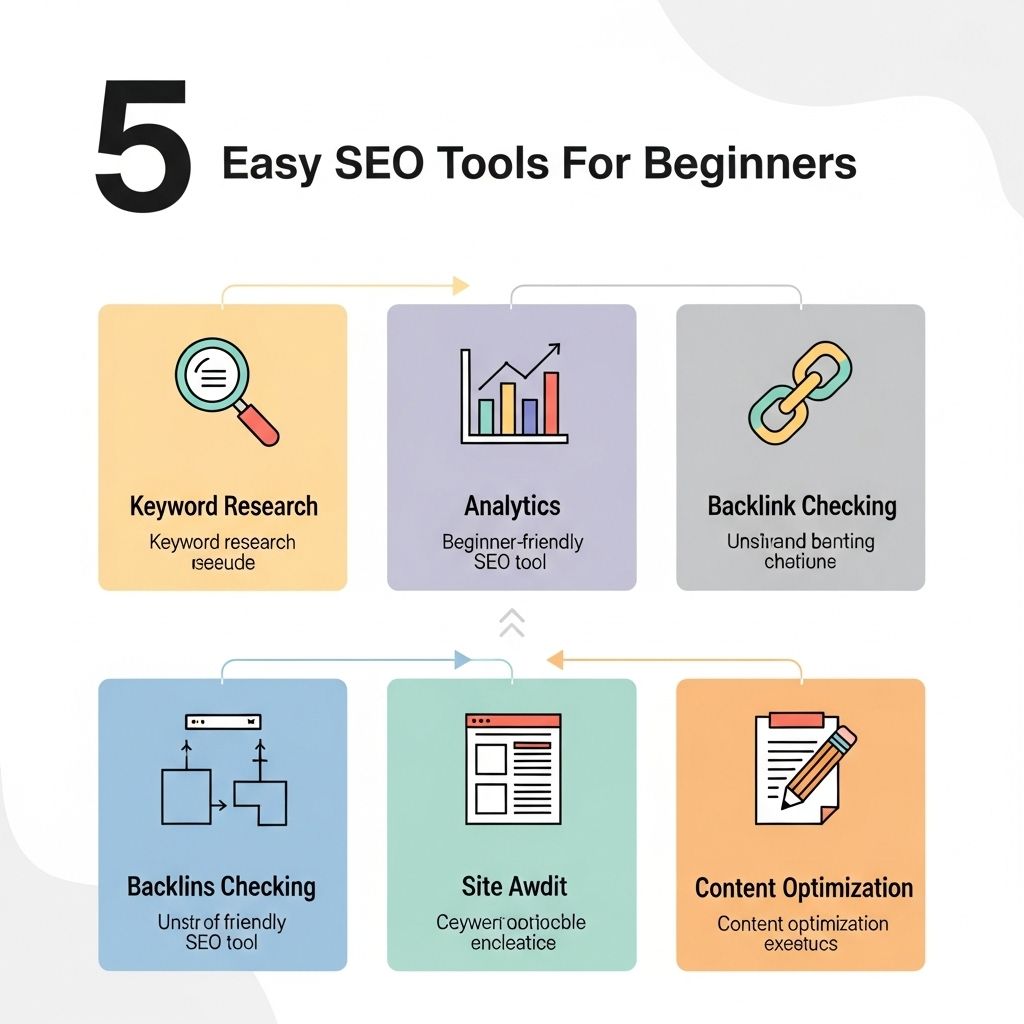Search Engine Optimization (SEO) is a crucial aspect of digital marketing that helps websites rank higher on search engine result pages (SERPs). For beginners, navigating the world of SEO can be daunting due to the myriad of tools and strategies available. Fortunately, there are several user-friendly SEO tools that can simplify the process, allowing newcomers to enhance their website’s visibility effectively. In this article, we will explore five easy-to-use SEO tools tailored for beginners looking to boost their online presence.
For beginners diving into the world of SEO, utilizing the right tools can significantly enhance your strategy and drive more traffic to your website. Understanding how to leverage these resources can simplify complex tasks, from keyword research to performance tracking. To get you started, here are five essential SEO tools that will help you optimize your online presence while you sip your coffee from your favorite mug—explore our mug mockups.
1. Google Analytics
Google Analytics is an essential tool for any website owner. It offers a wealth of data regarding traffic sources, user behavior, and overall site performance. Setting it up is straightforward, and the insights you gain can significantly inform your SEO strategy.
Key Features:
- Traffic Analysis: Understand where your visitors are coming from.
- User Behavior Tracking: Analyze how users interact with your site.
- Conversion Tracking: Measure the success of your goals (e.g., sign-ups, purchases).
- Custom Dashboards: Personalize your reporting according to your needs.
Getting Started:
- Create a Google account.
- Sign up for Google Analytics.
- Install the tracking code on your website.
- Set goals to track specific user actions.
2. Moz Keyword Explorer
Moz Keyword Explorer is an intuitive tool that helps beginners conduct keyword research, a vital element of any SEO strategy. It provides insights into keyword difficulty, search volume, and potential click-through rates.
Key Features:
- Keyword Suggestions: Generate keyword ideas based on seed keywords.
- Difficulty Score: Assess how hard it would be to rank for a specific keyword.
- Search Volume Data: Discover how often users search for a keyword.
- SERP Analysis: See who currently ranks for your target keywords.
Getting Started:
- Sign up for a Moz account.
- Navigate to the Keyword Explorer tool.
- Enter your desired keywords and analyze the results.
3. Ubersuggest
Ubersuggest, created by Neil Patel, is an all-in-one SEO tool that’s particularly appealing to beginners due to its user-friendly interface and comprehensive data. It offers keyword suggestions, domain analysis, and content ideas.
Key Features:
- Keyword Suggestions: Find new keywords based on your input.
- Domain Overview: Analyze your competitors’ domains for insights.
- Backlink Data: Discover who links to your competitors.
- Content Ideas: Generate topic suggestions based on trending content.
Getting Started:
- Visit the Ubersuggest website.
- Input a keyword or domain into the search bar.
- Explore the various reports generated.
4. Yoast SEO
If you use WordPress for your website, Yoast SEO is an indispensable plugin that simplifies the process of optimizing your content. It provides real-time feedback on the SEO-friendliness of your posts and pages.
Key Features:
- SEO Analysis: Get instant feedback on your content’s SEO score.
- Readability Score: Ensure your content is easy to read for users.
- Meta Tag Management: Easily edit title tags and meta descriptions.
- XML Sitemap Generation: Automatically create and submit your sitemap.
Getting Started:
- Install the Yoast SEO plugin on your WordPress site.
- Configure the initial setup wizard.
- Begin optimizing your posts using the provided feedback.
5. SEMrush
SEMrush is a comprehensive marketing tool that offers a wide range of features, making it suitable for beginners and advanced users alike. While it has a steeper learning curve than some of the other tools, its capabilities can be incredibly beneficial for those willing to invest the time.
Key Features:
- Keyword Research: Explore thousands of keywords to find opportunities.
- Site Audit: Identify issues affecting your website’s performance.
- Competitor Analysis: Analyze your competitors’ strategies.
- Backlink Tracking: Monitor your backlink profile and discover new linking opportunities.
Getting Started:
- Sign up for a SEMrush account.
- Familiarize yourself with the dashboard.
- Start with the site audit tool to identify immediate issues.
Conclusion
Starting your SEO journey doesn’t have to be overwhelming. By leveraging these five easy-to-use tools, beginners can gain valuable insights and make informed decisions to improve their website’s SEO performance. Whether you choose to utilize Google Analytics for tracking traffic or rely on Yoast SEO for optimizing your WordPress content, these tools will empower you to take control of your online presence. Remember, SEO is an ongoing process, and by consistently analyzing and optimizing your strategies, you can achieve long-term success in the digital landscape.
FAQ
What are some easy SEO tools for beginners?
Some easy SEO tools for beginners include Google Analytics, Google Search Console, Ubersuggest, MozBar, and Yoast SEO.
How can Google Analytics help beginners with SEO?
Google Analytics provides insights into website traffic, user behavior, and conversion rates, helping beginners understand how their SEO efforts impact site performance.
What features does Google Search Console offer for SEO beginners?
Google Search Console offers features like keyword performance tracking, site indexing status, and mobile usability reports, which are essential for optimizing a website.
Is Ubersuggest a good tool for keyword research?
Yes, Ubersuggest is a user-friendly tool that provides keyword suggestions, search volume data, and competitive analysis, making it ideal for SEO beginners.
How does MozBar assist with on-page SEO?
MozBar is a browser extension that provides instant metrics on page authority and domain authority, helping beginners evaluate the SEO strength of their own and competitors’ sites.
What is Yoast SEO and how does it benefit beginners?
Yoast SEO is a plugin for WordPress that helps beginners optimize their content for search engines with real-time analysis and recommendations on SEO best practices.




